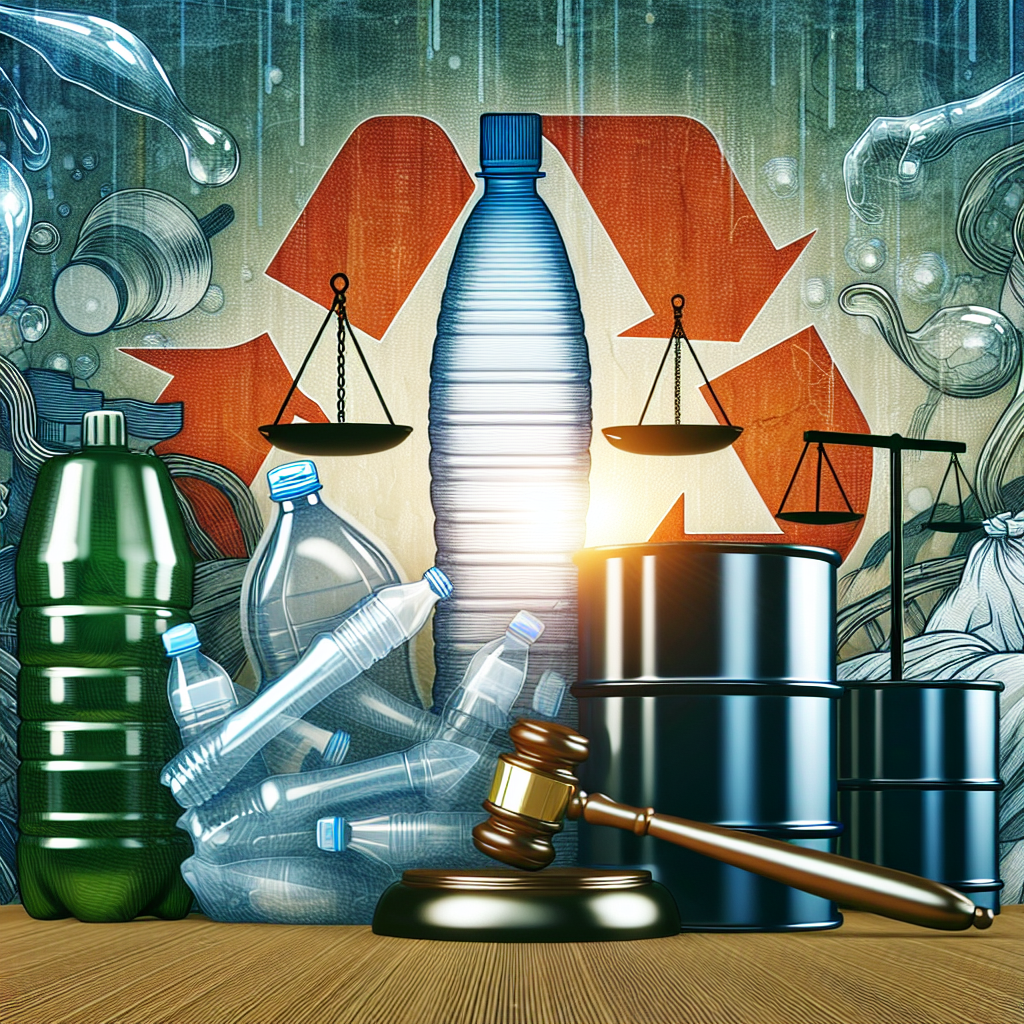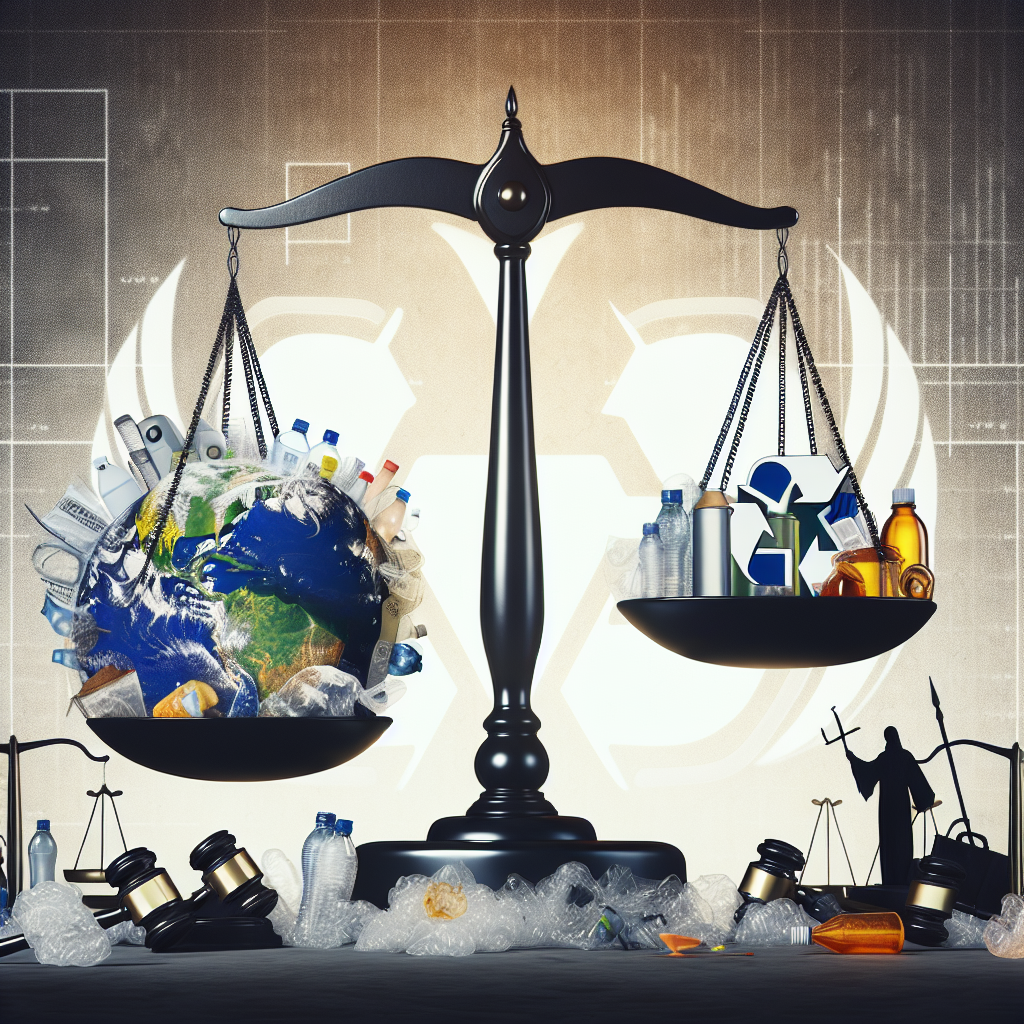-
Table of Contents
- Lawsuit Alleges ExxonMobil Misled Public on Plastic Recycling
- The Allegations Against ExxonMobil
- Key Points of the Lawsuit
- Understanding Plastic Recycling
- Challenges in Plastic Recycling
- ExxonMobil’s Response
- ExxonMobil’s Initiatives
- Case Studies and Examples
- Lessons from Coca-Cola’s Case
- The Broader Context of Plastic Pollution
- Global Efforts to Combat Plastic Pollution
- Conclusion
Lawsuit Alleges ExxonMobil Misled Public on Plastic Recycling

In recent years, the issue of plastic pollution has garnered significant attention from environmentalists, policymakers, and the general public. Amidst growing concerns, a lawsuit has been filed against ExxonMobil, one of the world’s largest oil and gas companies, alleging that the corporation misled the public about the recyclability of its plastic products. This article delves into the details of the lawsuit, the implications for ExxonMobil, and the broader context of plastic recycling.
The Allegations Against ExxonMobil
The lawsuit, filed by environmental advocacy groups, claims that ExxonMobil engaged in deceptive marketing practices by promoting its plastic products as recyclable when, in reality, a significant portion of these plastics end up in landfills or the environment. The plaintiffs argue that ExxonMobil’s advertising campaigns misled consumers into believing that their plastic waste would be effectively recycled, thus contributing to the ongoing plastic pollution crisis.
Key Points of the Lawsuit
- ExxonMobil allegedly overstated the recyclability of its plastic products.
- The company is accused of using misleading marketing tactics to create a false sense of environmental responsibility.
- The lawsuit seeks to hold ExxonMobil accountable for its role in exacerbating plastic pollution.
Understanding Plastic Recycling
To fully grasp the implications of the lawsuit, it is essential to understand the current state of plastic recycling. Despite widespread efforts to promote recycling, the reality is that only a small fraction of plastic waste is actually recycled. According to a report by the National Geographic, less than 10% of all plastic ever produced has been recycled.
Challenges in Plastic Recycling
- Contamination: Many plastic products are contaminated with food residue or other materials, making them difficult to recycle.
- Complexity: Different types of plastics require different recycling processes, complicating the recycling efforts.
- Economic Viability: The cost of recycling plastic often exceeds the cost of producing new plastic, discouraging recycling initiatives.
ExxonMobil’s Response
In response to the lawsuit, ExxonMobil has denied the allegations, stating that the company is committed to addressing plastic waste and promoting sustainable practices. The corporation has highlighted its investments in advanced recycling technologies and partnerships with various organizations to improve plastic waste management.
ExxonMobil’s Initiatives
- Advanced Recycling: ExxonMobil has invested in chemical recycling technologies that can convert plastic waste into valuable raw materials.
- Collaborations: The company has partnered with organizations like the Alliance to End Plastic Waste to develop solutions for plastic pollution.
- Public Awareness: ExxonMobil has launched campaigns to educate consumers about proper recycling practices.
Case Studies and Examples
To provide a comprehensive view of the issue, it is helpful to examine case studies and examples of similar allegations against other companies. One notable case is the lawsuit against Coca-Cola, which faced accusations of misleading consumers about the recyclability of its plastic bottles. The case resulted in increased scrutiny of the company’s environmental claims and prompted Coca-Cola to enhance its recycling efforts.
Lessons from Coca-Cola’s Case
- Companies must ensure that their environmental claims are accurate and transparent.
- There is a growing demand for corporate accountability in addressing plastic pollution.
- Enhanced recycling efforts and investments in sustainable technologies are crucial for mitigating plastic waste.
The Broader Context of Plastic Pollution
The lawsuit against ExxonMobil is part of a larger movement to address the global plastic pollution crisis. Environmental organizations, governments, and consumers are increasingly calling for more stringent regulations and corporate responsibility in managing plastic waste. The United Nations has identified plastic pollution as one of the most pressing environmental issues, with an estimated 8 million tons of plastic entering the oceans each year.
Global Efforts to Combat Plastic Pollution
- Policy Initiatives: Countries like Canada and the European Union have implemented bans on single-use plastics to reduce plastic waste.
- Corporate Commitments: Companies such as Unilever and Nestlé have pledged to make their packaging more sustainable and increase the use of recycled materials.
- Consumer Actions: Individuals are adopting zero-waste lifestyles and supporting brands that prioritize sustainability.
Conclusion
The lawsuit alleging that ExxonMobil misled the public about plastic recycling underscores the urgent need for transparency and accountability in addressing plastic pollution. While ExxonMobil has denied the allegations and highlighted its efforts to promote recycling, the case serves as a reminder that more comprehensive and effective solutions are needed to tackle the plastic waste crisis. As the world grapples with the environmental impact of plastic pollution, it is crucial for corporations, governments, and consumers to work together to create a sustainable future.
In summary, the key takeaways from this article are:
- The lawsuit against ExxonMobil highlights the issue of misleading environmental claims by corporations.
- Plastic recycling faces significant challenges, including contamination, complexity, and economic viability.
- ExxonMobil has invested in advanced recycling technologies and partnerships to address plastic waste.
- Case studies like Coca-Cola’s demonstrate the importance of corporate accountability and transparency.
- Global efforts to combat plastic pollution involve policy initiatives, corporate commitments, and consumer actions.
Ultimately, addressing plastic pollution requires a collective effort to implement sustainable practices and hold corporations accountable for their environmental impact.


